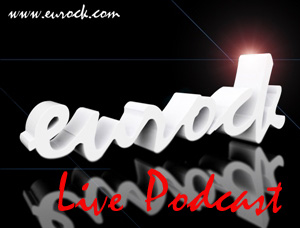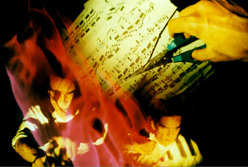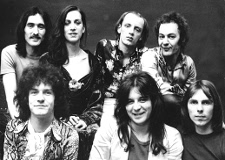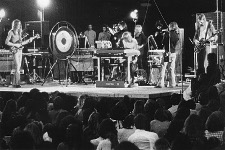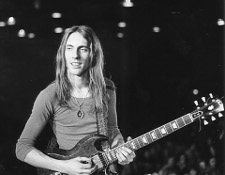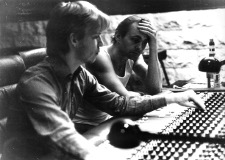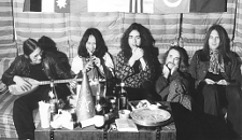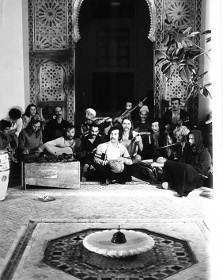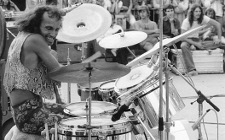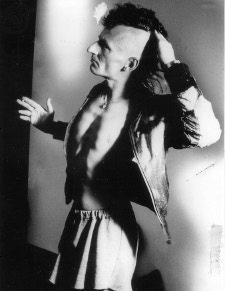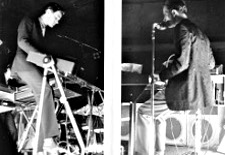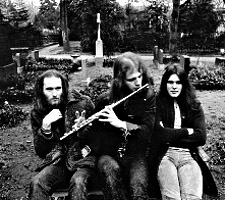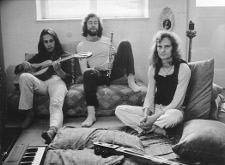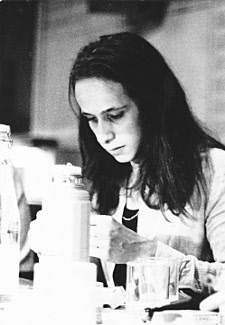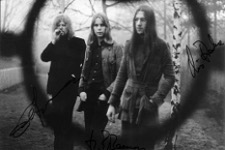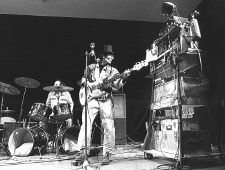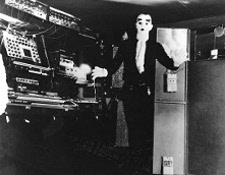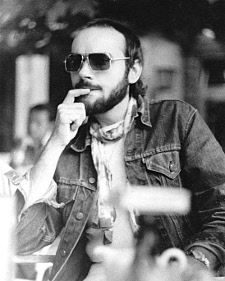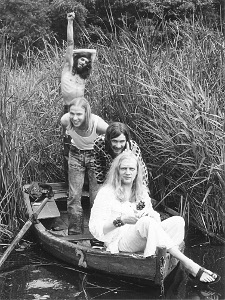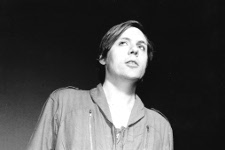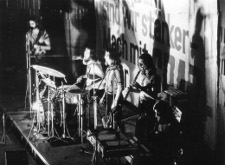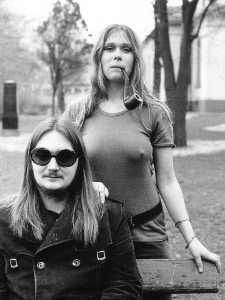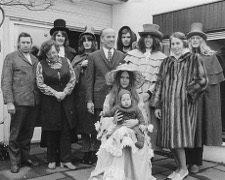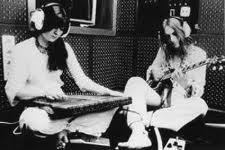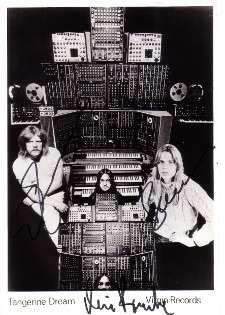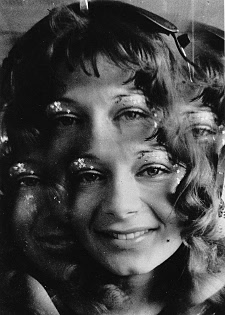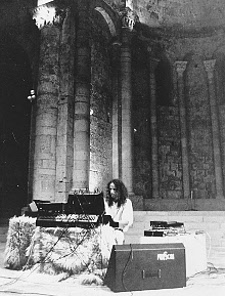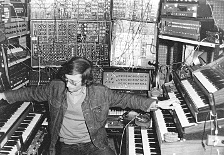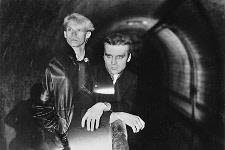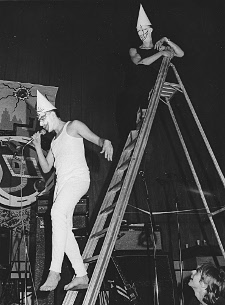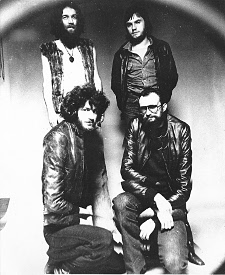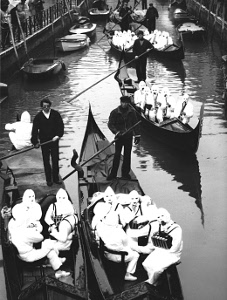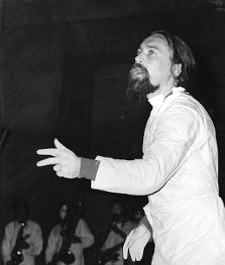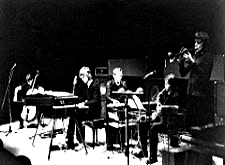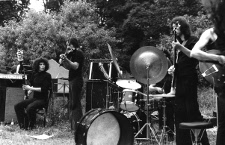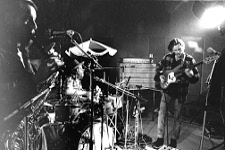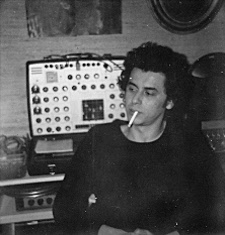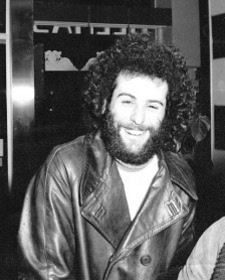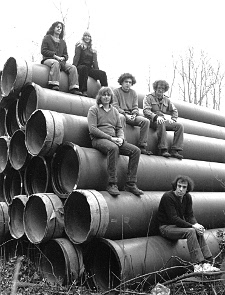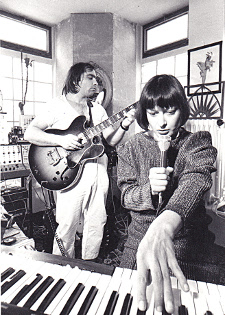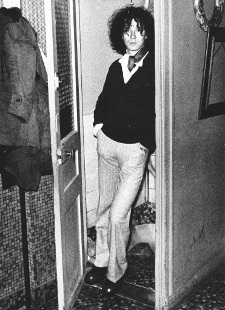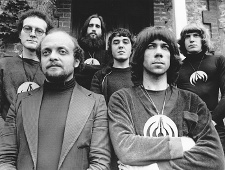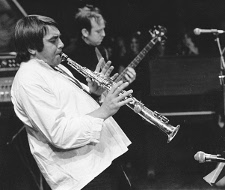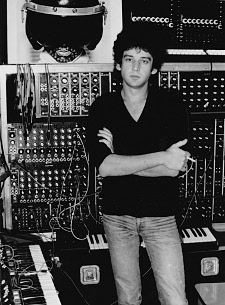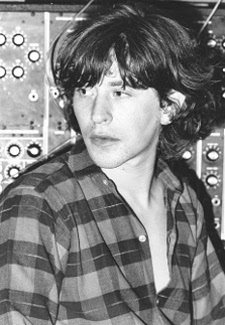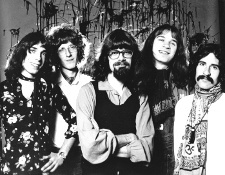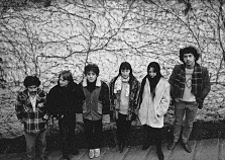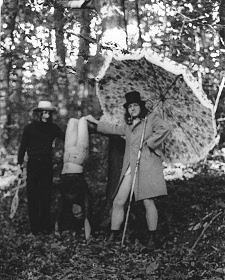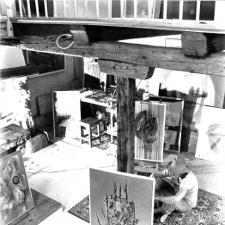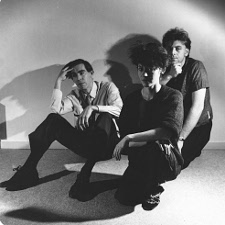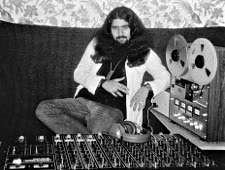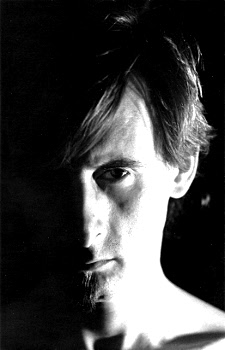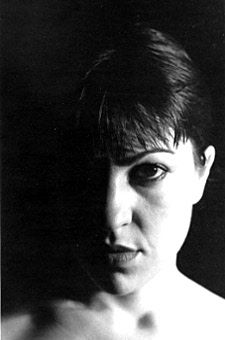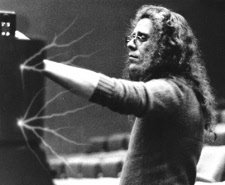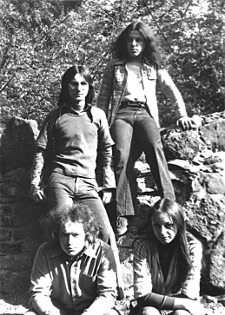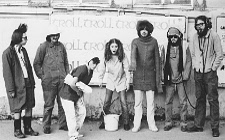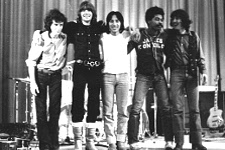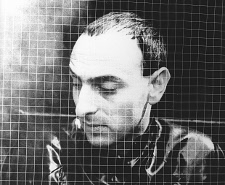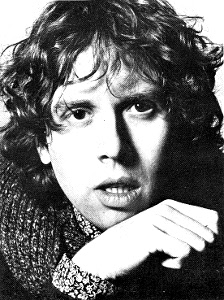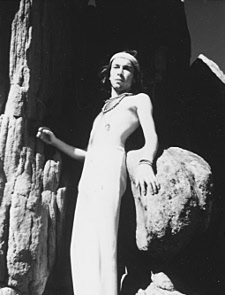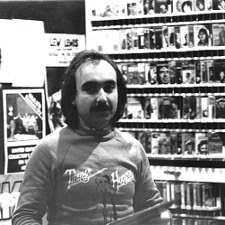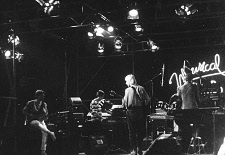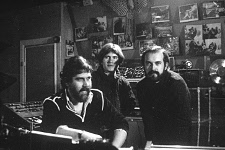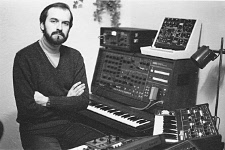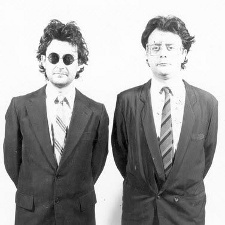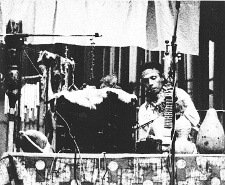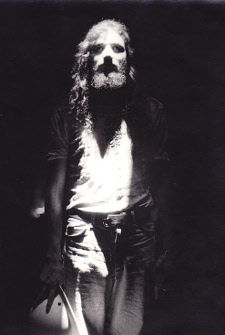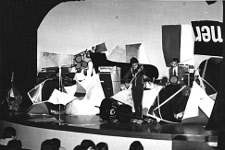The Story so far...
1970's- FM radio, Alternative Magazine & 1st US Indie Distributor of Euro Rock
1980's- D.I.Y. LP + Cassette & CD label
1990's- Distribution via the WWW
2010- Eurock.com ~ Multimedia Podcasting, Interviews & Reviews.
Label & Artist Submissions Accepted for Review...
Klassik Krautrock
Artistes Français
|
KLUSTER
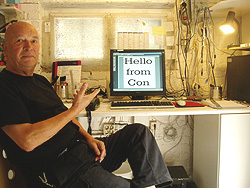
Questions w/
Words by Conrad Schnitzler
Commentary by Wolfgang Seidel
The band Kluster was arguably one of the very first German electronic music groups from Berlin. Its founder CONrad Schnitzler was, and is, certainly one of the most experimental and unique artists on the German scene back then, and still now. CON has created a body of work that defies categorization. He in fact stands alone in terms of sound, methodology and execution when it comes to his earlier live work, and also his multitude of studio creations as well. His life is his work, an ever evolving act of creation.
Recently he did for Eurock a recording about his ideas, life, and musical concepts. That was made into a very different Eurock LIVE Podcast. In fact, unlike the other Eurock Podcast our attempt was to use CONs words and combine them with his music in the spirit of KLUSTER. You can download it free online and hear this Special CONcast now.
Along with his audio history CON sent along an Addendum document. The following Interview is a combination of Questions and some of his written Words which speak to them, acting as a sort of Answers. Included as well was a more in depth commentary written by Wolfgang Seidel dealing with the culture, social and creative nature of those times and CON's work specifically. Taken as a whole, the Podcast & Interview + Commentary offer a very revealing look at the work, ideas and collaborative energies that went into creating Kluster. Please Read, Listen & experience CON in a way you never have before.
Enjoy! A.
When did you found the music group Kluster?
After my exit 1969 from the group GERAUSCHE (Zodiak - with Roedelius and Boris Schaak), from 1969 to 1972 I worked with different friends, with TD among others. With them I tried to perform the music of my imagination. Finally Klaus Freudigmann and Wolfgang Seidel remained at the work continuously over the years. In addition there were several actions with Achim Roedelius and Dieter Moebius where the LPs KLUSTER Klopfzeichen, Zwei Osterei and Eruption were made. Instruments, amplifier and effects I gave Moebius because he had had no own equipment.
What was the musical concept of Kluster?
I founded the group KLUSTER in 1969. The idea was to make sounds without melodies, sounds comparing to industrial noises. I had different friends with me to play. No money was to be earned with this music. No fame, to attain with it. I met Roedelius and Moebius in that time and they agreed with me and my ideas. By the way I'm not a musician; I'm an InterMedia artist and composer. With the different KLUSTER groups we did some live concerts.
I did not want the music to remind of the normal. My criteria was not folk music, not rock music, not pop songs and not dance music. The idea for "Cluster" later "KLUSTER" (I wanted to avoid American-isms) is not only a name for a group but a form of music. I had amplifier, instruments, contact Mics and effects that could be used by the others, too. Klaus had tape machines and microphones. In addition he constructed instruments and electronic sound generators, which made the most indescribable sounds. Wolfgang had everything connected with drum and base and in addition amplifier and effects. Klaus had rooms where we could work out our music performances. The tapes "Electric Meditation" with TD were made in one of those spaces. Most of the performances happened with friends who took part in the actions; therefore Conrad, Klaus, Wolfgang and friends.
What was Eruption?
For special activities we used the name ERUPTION. 'Eruption' (Ausbruch) is the title of the 1st LP. Of that I had produced an edition of 100 LPs. Later the Gallery Block had made another edition of 100 LPS of it for the 'Block Box' with a label without Moebius' and Roedelius' names though. Later in 1997 Joe (Marginal Talent) produced a CD of it. The group KLUSTER - was a conglomerate of totally different players and artists over several years. But for all those years Klaus Freudigmann was involved sometimes as player, or as sound engineer or even as inventor of instruments. It was him who taped the last KLUSTER Concert. Therefore he was named equally along with the others on the label. Before and after the work with Roedelius & Moebius I still did a lot of activities with the group KLUSTER.
Did the musik of Kluster sell well?
It was not popular music KLUSTER did. Not many people were interested. Therefore, there were no photos of Kluster, or posters, or tickets, or newspaper cuttings, or anything related left. That was some 35 years ago.
There was a new Kluster 2007 release last year?
It was the absolute Connection for the idea of KLUSTER in this time: Global playing together without being on the same place. Every artist makes his own mix in the Kluster-intention. This means democracy and variety.
So it seems Kluster is not over and the music lives on?
If we friends meet, we didn't think about under which name we met. It is the style of the music which comes out. No other group made such music. This is KLUSTER music, it is a style. It is an invention of Konrad Schnitzler 1969. Schnitzler/Freudigmann/Seidel & Friends were before Roedelius and Moebius came to the band and after. I founded the group KLUSTER after my exit 1969 from Zodiak, and from Boris Schak and Achim Roedelius. Kluster was never over. There is KLUSTER until today.
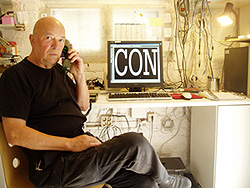
Commentary by Wolfgang Seidel on Kluster
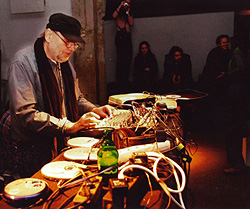
Summer of Love?
Kluster was formed in West-Berlin, much closer to Siberia than to San Francisco, Haight Ashbury and Golden Gate Park. What came to Berlin with a two years delay were only the outer fringes of the Summer of Love. Its blossom would have died soon in the Cold War breeze. And 1970 a lot of the optimism of the mid 60s had already ceased. It became obvious that creating a better world needs more than flowers in your hair. But the political movements of the late sixties were a child of the same optimism that fuelled the rapid developments changing not only the material side of life but also arts, music and the way people interacted. The new left and the hippie movement where all these ideas concentrated was not the result of poverty, but was built on the belief that with modern technology there is enough for everybody. It is only a question of a fair distribution.
That optimism had a soundtrack that was based on the same technology. From the electric guitar, reverb and echo units to the first synthesizers, everything was welcome that sounded as if it came from the future. Future meant space travel � so it is quite natural that the first effects wildly used where those who send you to a space you have never been before: artificial reverb and echo. A lot of people had their first encounter with this new music at the movies watching Sci-fi- films like Forbidden Planet with the electronic tonalities of Louis and Bebe Barron (1956) Their work was not called music to avoid paying royalties and having to quarrel with the conservative musicians trade unions.
For a few years rock music was the most popular of new sounds and for a lot of people the door opener. It was one of the rare moments when you could be at the same time avant-garde and mainstream. But this did not last long. Pop music quickly became old music with new instruments when it turned into highly standardized entertainment. And the use of the electric guitar developed rules like any other traditional instrument.
Amongst that people that met to form Kluster were Klaus Freudigmann and Wolfgang Seidel, who both grew disenchanted with pop music and Conrad Schnitzler who came from a complete different direction as sculptor. While the others discovered the new territories of sound via psychedelic music, Schnitzler was a fan of Stockhausen, Cage etc. but was distracted by the highbrowed elite attitude with which this music surrounded itself in Germany. What met was the self empowerment of early rock music with the search for new sounds and structures of 20th century avant-garde music.
That Kluster made simple music on DIY instruments, droning and banging on one note for half an hour did not mean we were into any kind of primitivism. We hated the bongo playing hippie and his backward dreams of tribal healthy societies (forgetting that hunger, war and oppression were not invented this year). To us the longing for sweet melodies was a regressive refuge from a world that is not sweet. We did not want to go back. If the future was inevitable, we wanted to shape it � at least sonically. That we preferred slow tempos sometimes gets mistaken as dark. We just gave every sound enough time to be listened to. And we wanted to draw a line between us and the, look I am the fastest guitar heroes that began to rule the stages. What we did was get rid of the schemes of pop and popular classic and find out, what else we can do with our tools, polishing and lubricating them for a future music.
But no matter how far your mind is in the future, your stomach is still on earth and demands feeding. When things got tougher in the 70s, the people that met under the labels Kluster and Eruption had to look for ways to earn their living. Conrad Schnitzler started his long solo voyage, Klaus Freudigmann took part in the squatters movement, and others took ordinary jobs and surfaced now and then with some new piece of music. What is left are some tapes and a few minutes of film documenting an installation Conrad Schnitzler sat up at Galerie Block (1970) reflecting the ideas behind Kluster. Violins that had bought cheap from the flea market were equipped with contact microphones and plugged into radios that had been mounted to the wall as amplifiers. The visitors (hopefully no musicians) experimented collectively with the sounds from the violins hearing themselves in the radio.
There is some confusion about Kluster/Eruption recordings. This is rooted long ago in the past but should also be solved after these many years. Kluster was always Conrad's brainchild. Eruption was used for events where Kluster was open to other people. The first time I remember that the name was used was for the Christmas concert at Quarter Latin (1971?) where everybody that had milled around the Zodiak showed up for some time. There even had been concerts where audience participation was the main idea and preventing the "real" musicians from taking part - something Conrad first did with his violin installation at Galerie Block. Take away the music from the musicians and their routine, then let people find out how to create sounds whose minds are not constrained by being trained to fulfil a paying audience's expectations. Kluster is not only a name and not a logo or a brand. It is a concept, a form of making music and a sound resulting from that concept. And music that fits into that concept is Kluster. That's what Conrad's work in those years was all about. It's nice that what's left from that time surfaces now. But it's not meant for the collector. It's meant to revive the old idea of everybody having the gift of creativity. That is now hidden under the restraints of daily life and work. Conrad decided early to withdraw from the music scene because it is a market place where art and ideas do not count - it is all about sales figures and thus serving common tastes. O.K., Conrad sells his music, too. But he does it to a small audience where he believes people are really interested in his work and not only following a fashion. If he was interested in commercial success, he would follow the rules of economy and look for one product selling as much as possible. Instead he makes a recording, and when it is done, it is done, then he focuses on the next one not thinking about how to market the last one. That's why there are so many releases. This is where the artist thinks different then a label.
This text is written to give an idea what time and situation is reflected in the music. It was the era of the big discussions how society works and how it should work. And music was a field to experiment not only with something different ideas sonically, but also socially. To explore what happens when there is no hierarchy or economic purpose. At the time Kluster regarded the process of creating sound with as much importance as the recording, or even more. This is something that is lost now. Music had become mostly a product for a market, following its rules and disguising that simple truth under esoteric talk, which only makes things worse. Well, I can not talk for Conrad, but I believe this is one of the reasons why he retreated from public, making his music for his friends. If they like the his music, good.
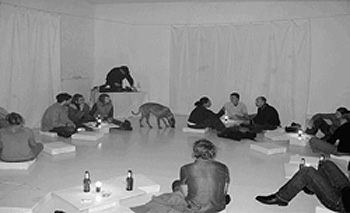
Kassetten Konzert ~ Conrad Schnitzler [DE], conducted by Wolfgang Seidel [DE]
The idea of an improvised remix concert of original, pre-recorded sound, was realized by nobody more fully than Conrad Schnitzler, the pioneering musician who convinced Tangerine Dream and Kluster (Cluster) to delve into the then-unexplored realm of synthesized sound, with his Kassetten Konzert. Prefigured by Pierre Henry performing live mixes with tapes, not unlike Stockhausen working his potentiometers, or Brian Eno, who processed Phil Manzanera's guitar solos with Roxy Music, Schnitzler nevertheless made the Cassette Concert his own with the unique and very influential techniques he developed in the 80s.
Today composers including David Myers and Gen Ken, David Prescott, Giancarlo Tonuitti, and Serge Leroy use similar systems, and echoes can be found in electronic dance music; Richie Hawtins live fragment-assemblage DJ, for example, and indeed, much laptop live performance. In the 80s, Schnitzler developed the concept of cassette concerts to create larger, more complex sound as a soloist for his live performances, and later used the techniques as a means for his music to tour without needing to travel himself, requiring a "performer" other than Schnitzler to select the material, adding uncontrolled, unforeseen elements to each concert. As each tape contains only one component of the piece, they are selected and combined differently forming the same basic, but variable and unpredictable composition. Cassette Concerts allowed Schnitzler to combine the best elements of structured composed music, improvised music, and conceptual music into a workable method of both composing and performing live electronic music. As predecessors of todays computational generative systems his techniques introduced a new take on electronic music performance, transforming static recordings into evolving event with an infinite number of outcomes. Other than the concrete differences that come from selecting the various tracks, there is variation through the mixing of volumes, the adjustment of equalization, and the placement of the speakers, both in stationary positions and with movement.
As Schnitzler�s long time collaborator, I am also a "player". I was involved in Schnitzler's Zodiak Free Arts Lab. Disenchanted with rock music, so too began collaborations with Schnitzler aimed at re-negotiating the roles of performer/listener and creating free-flowing improvised sound. The cassettes have been replaced today by CDs, with additional and updated signal processing of original sounds, but the techniques remain otherwise unchanged. Some of Schnitzlers rarely seen videos from the 80s are also screened during the performances.
[Photos Courtesy of CON & Wolfgang Sequenza ~ Special Thanks to Michael Thomas Roe]
 reviews features podcasts email bio
reviews features podcasts email bio